14 Jan2021
By Nicole Dunn
 In this new year, AACTE is recommitting its efforts to support the field in combating the racism that permeates throughout our education system. As a part of these efforts, AACTE will host a webinar each month that is centered on naming, learning, addressing, reforming, and promoting antiracist culture and policies throughout the education system. During these one-hour virtual sessions, you will hear from members and leaders in the field who have been doing the research and work to ensure PK-12 students receive a truly inclusive education. Our goal is for all participants, whether you are an administrator, faculty member, candidate, or current practitioner, to walk away with actionable steps to address internal, interpersonal, and systemic racism.
In this new year, AACTE is recommitting its efforts to support the field in combating the racism that permeates throughout our education system. As a part of these efforts, AACTE will host a webinar each month that is centered on naming, learning, addressing, reforming, and promoting antiracist culture and policies throughout the education system. During these one-hour virtual sessions, you will hear from members and leaders in the field who have been doing the research and work to ensure PK-12 students receive a truly inclusive education. Our goal is for all participants, whether you are an administrator, faculty member, candidate, or current practitioner, to walk away with actionable steps to address internal, interpersonal, and systemic racism.
Racism is a broad and entrenched system of discrimination that has been largely ignored in our history, and every individual in our education system has a part to play in correcting it. Therefore, to begin this series, we want to focus on Discussing Race in Classrooms. In addition to learning how to prepare candidates to discuss racism in PK-12 classrooms, the webinar will address how educator preparation programs and other education field leaders can do the internal, interpersonal, and system-wide work to effectively support and prepare candidates to do so within those programs.
Register Today to join AACTE and the esteemed panel for or its first webinar: Discussing Race in PK-12 Classrooms, Why it’s an Essential Skill, on January 25, 2:00 p.m. EST. We exist in a world of relationships, and therefore, it is imperative that we examine our country’s and our education system’s historic relationship with racism and students of color before we endeavor to implement antiracist policies in our programs. In this session, we will take a look back at the central historic systemic inequities that have created an environment in which a majority of educators are ill-prepared and unwilling to name and discuss race and racism in classrooms. From that historical perspective, we will look at its effects on discipline and special education systems, both of which maintain systemic inequities and exacerbate racial discrimination for students with intersectional identities.
Register for Discussing Race in PK-12 Classrooms, Why It’s an Essential Skill
05 Jan2021
By Marvin Lynn
T his article originally appeared in Diverse Issues in Higher Education and is reprinted with permission.
his article originally appeared in Diverse Issues in Higher Education and is reprinted with permission.
As we embark upon a new year, it is important for education leaders to reflect on 2020 in order to assess what we got right, determine what went wrong, and then set a course for a more equitable education for all students in 2021.
The COVID-19 pandemic illuminated the multiple and complex inequalities that exist in our schools. In remote learning environments, students who were already disengaged from school, in some cases, became more detached and harder to reach, particularly the population of historically underserved and marginalized PK-12 students. Undergraduate programs in higher education experienced similar issues, as some students felt more marginalized and isolated due to not being in classrooms. The pandemic has taught us that educator preparation programs must instill in teacher candidates the importance of building relationships. If educators don’t develop healthy and sound relationships based upon mutual trust with their students, then it’s harder to teach—and definitely harder to reach—those students for whom school is not a positive experience.
05 Jan2021
By AACTE
AACTE has launched a new initiative to examine state-level teacher certification assessment scores, with the goal to improve equitable and inclusive practices for promoting a diverse educator workforce. The initiative, funded by the Bill & Melinda Gates Foundation, will enable AACTE to develop national guidelines and recommendations for state education leaders in establishing criteria for equitable evaluations for teacher candidates seeking state licensure.
“Left uninterrogated, standardized tests of any sort tend to spur inequalities, rather than resolve them,” said Leslie T. Fenwick, AACTE dean in residence. “If entrance exams are decimating the ranks of prospective pre-service teachers of color, we have a moral and practical obligation to correct the outsized impact of these tests on the future of our profession.”
17 Dec2020
Increase Focus on Technology and Commitment to Equity and Diversity
By Matt Vanover
 The Council for the Accreditation of Educator Preparation (CAEP) Board of Directors has approved changes to the 2013 CAEP Standards for educator preparation. The CAEP Standards guide the nation’s top schools of education, those that are CAEP accredited, in preparing future K-12 teachers. The changes the Board approved include streamlining language, strengthening emphasis on technology, equity, and diversity. The revised standards are in effect for providers with visits in spring 2022.
The Council for the Accreditation of Educator Preparation (CAEP) Board of Directors has approved changes to the 2013 CAEP Standards for educator preparation. The CAEP Standards guide the nation’s top schools of education, those that are CAEP accredited, in preparing future K-12 teachers. The changes the Board approved include streamlining language, strengthening emphasis on technology, equity, and diversity. The revised standards are in effect for providers with visits in spring 2022.
“The changes to the standards maintain our commitment to continuous improvement for our organization and our providers. The CAEP Standards were developed in 2013 to unify the profession under a single set of standards, with a commitment to ensure they remain rigorous. The enhancement to the standards is based on research to ensure rigor and relevance,” said CAEP President Christopher A. Koch. “CAEP providers are committed to preparing graduates that are ready to teach all students on the first day they enter a classroom.”
14 Dec2020
By Pamela Carroll
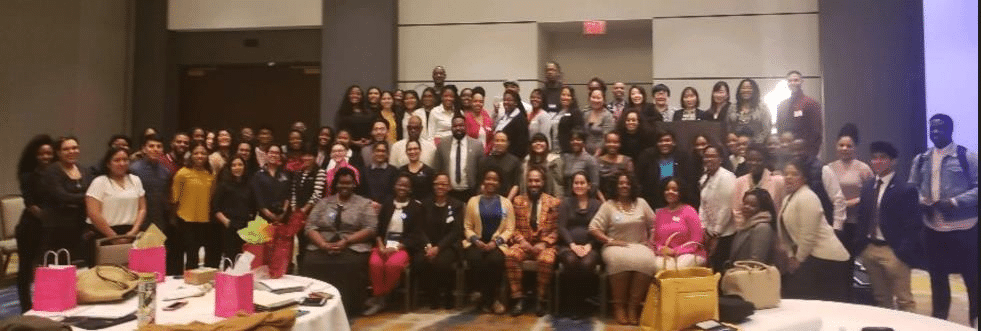
Did you know that over 1,000 traditionally underrepresented doctoral students have benefitted from the AACTE Holmes Scholars Program? Through networking, collaboration, mentoring, leadership opportunities, and research activities, the program provides high-achieving minority students with rich professional development. In fact, you probably know a former scholar, as many are now in tenured faculty and leadership positions at institutions across the United States.
Educator preparation programs (EPPs) are keenly focused on developing strategies to advance the field of education, close the equity gap, and make a more diverse teacher workforce a reality, and the Holmes Scholar Program is an essential component to achieving those goals. To promote diversity of the education profession and to prepare educators who can serve diverse learners, the program provides EEPs with the opportunity to attract students from historically underrepresented communities, increase the retention and graduation rates of doctoral students of color, and strengthen the institution’s role as a leader in supporting diversity.
08 Dec2020
By Nicole Dunn
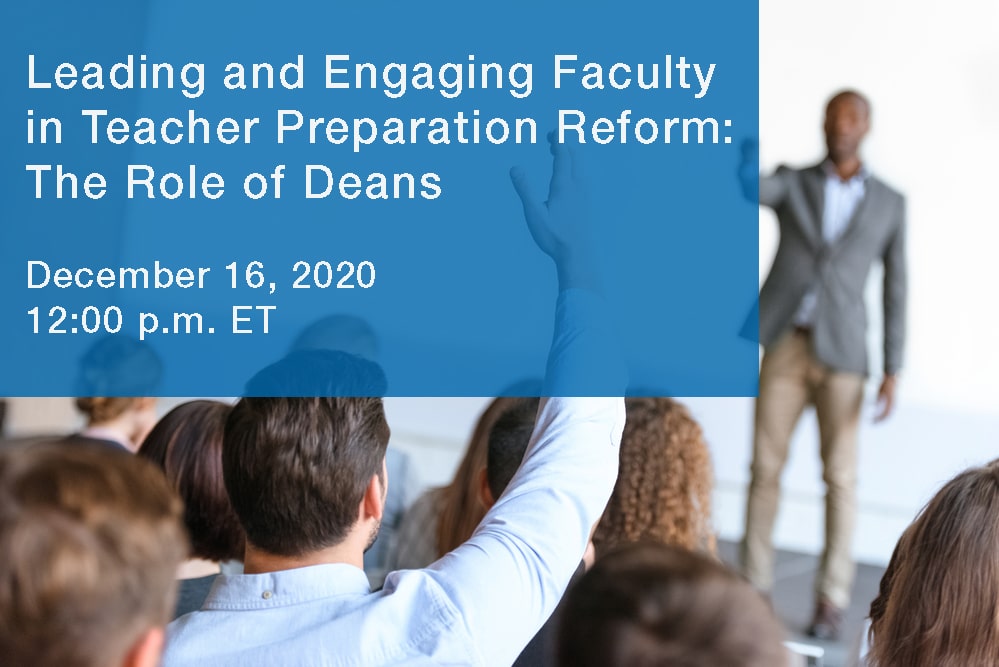
AACTE and CEEDAR (Collaboration for Effective Educator Development, Accountability, and Reform) Center are partnering together to present a webinar centered on a special issue brief, Leading and Engaging Faculty in Teacher Preparation Reform: The Role of Deans. The issue brief summarizes the experiences in leadership of six current and former deans who have been identified as engaging in successful collaborative reform efforts within their colleges.
During the one-hour event, Mary Brownwell will talk with Marquita Grenot-Scheyer and Kandi Hill-Clarke about the issue brief and their experiences of cultivating collaboration and supporting innovation among general and special education faculty who share responsibility to support students in diverse and inclusive classrooms. Since few resources exist to support deans in their efforts to work with faculty to engage in this work, AACTE and CEEDAR believe the experiences of these leaders will be useful to other deans as they work toward similar outcomes.
Register for the webinar, which will take place December 16 from 12:00 – 1:00 p.m. (ET). Learn more about the panelists:
08 Dec2020
By Jacqueline Rodriguez, Jane E. West, Jacqueline E. King, Ph.D. and Ward Cummings
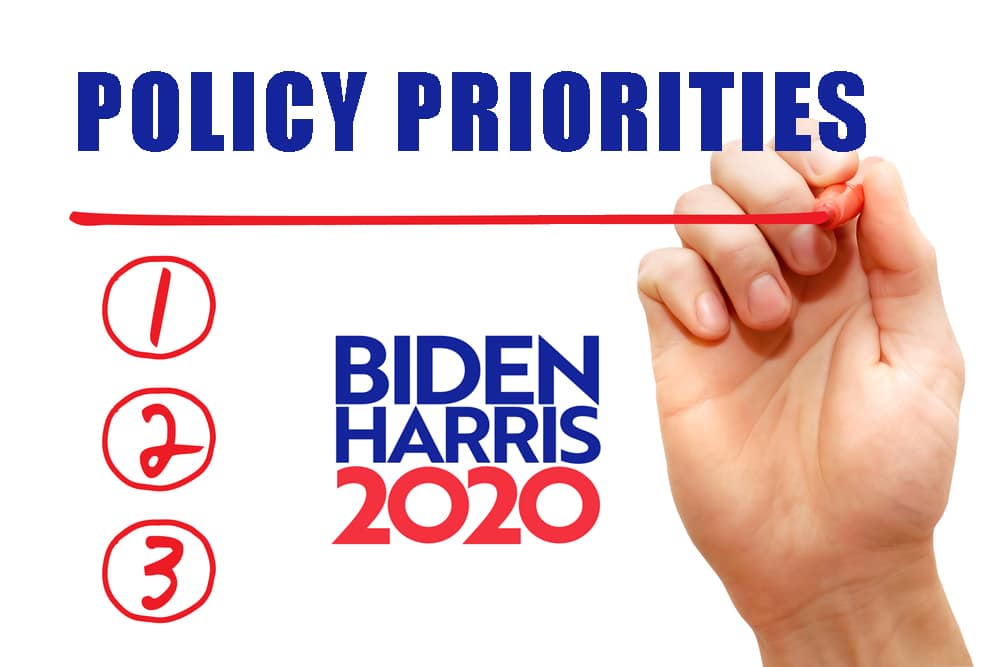 The nation’s transition to the 46th presidential administration are underway. AACTE provided the Biden-Harris Administration’s Education Transition Team with its policy priorities for the coming year. Much of AACTE’s priorities stem from its advocacy throughout the year to increase the federal investment in education in PK-20, with a specific focus on recruiting and sustaining candidates in its education preparation programs.
The nation’s transition to the 46th presidential administration are underway. AACTE provided the Biden-Harris Administration’s Education Transition Team with its policy priorities for the coming year. Much of AACTE’s priorities stem from its advocacy throughout the year to increase the federal investment in education in PK-20, with a specific focus on recruiting and sustaining candidates in its education preparation programs.
As a result of the COVID-19 pandemic, educator preparation stands at a dangerous crossroad. The college and university programs that prepare our teachers, principals, school counselors, and other essential education professionals are experiencing a debilitating wave of closures and faculty layoffs.
08 Dec2020
By JTE Insider
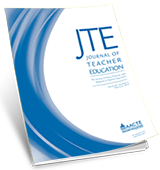 Check out a recent JTE Insider podcast by the Journal of Teacher Education (JTE) editorial team. This blog is available to the public, and AACTE members have free access to the articles in the JTE online archives—just log in with your AACTE profile.
Check out a recent JTE Insider podcast by the Journal of Teacher Education (JTE) editorial team. This blog is available to the public, and AACTE members have free access to the articles in the JTE online archives—just log in with your AACTE profile.
This podcast interview features insights from the article, “Preparing Teachers to Notice Race in Classrooms: Contextualizing the Competencies of Preservice Teachers With Antiracist Inclinations,” by Niral Shah and Justin A. Coles. The article is published in the November/December 2020 issue of the Journal of Teacher Education.
Article Abstract: Race-focused teacher education has centered on changing preservice teachers’ racial beliefs and attitudes. In this article, we build on this work by exploring how preservice teachers identify and address issues of race and racism in the everyday work of teaching and learning. To conceptualize these processes, we propose the theoretical framework of “racial noticing,” which extends the literature on teacher noticing to the consideration of racial phenomena. Using a comparative case study design, this study focuses on three elementary preservice teachers (two identifying as White, one identifying as Black) with antiracist inclinations. Findings show that they demonstrated generally strong competencies with racial noticing during a mathematics methods course, but that contextual factors influenced shifts in racial noticing during student teaching. We argue that race-focused teacher education centered on noticing the impact of race and racism in learning settings can make the practice of antiracist teaching more tractable for preservice teachers.
Listen Now.
04 Dec2020
By Jacob Easley II
This article originally appeared in Diverse Issues in Higher Education and is reprinted with permission.
 The 1787 U.S. Constitution was ratified to establish justice, liberty, and prosperity, but not for all Americans. Like the Constitution, early American educational practices were based on a system of whiteness and elitism. Justice and prosperity for those who comprise marginalized groups have remained largely unfulfilled. We know for certain that we are a pluralistic society. No one group has singularly built this nation, secured its borders, nor defended its values. The plurality of our nation is our strength. As educators, particularly who prepare America’s future teachers, we must double down, now more than ever, on what Horace Mann said, “Education, beyond all other devices of human origin, is the great equalizer of the conditions of men, the balance wheel of the social machinery.”
The 1787 U.S. Constitution was ratified to establish justice, liberty, and prosperity, but not for all Americans. Like the Constitution, early American educational practices were based on a system of whiteness and elitism. Justice and prosperity for those who comprise marginalized groups have remained largely unfulfilled. We know for certain that we are a pluralistic society. No one group has singularly built this nation, secured its borders, nor defended its values. The plurality of our nation is our strength. As educators, particularly who prepare America’s future teachers, we must double down, now more than ever, on what Horace Mann said, “Education, beyond all other devices of human origin, is the great equalizer of the conditions of men, the balance wheel of the social machinery.”
America has yet to become an equal society, and these societal ills create the need for scholar activism embedded in Critical Race Theory (CRT), which historically documents and names the atrocities carried out in this country in the name of freedom, liberty, and democracy. America’s struggle to uphold the Constitution for all its citizens makes it necessary to examine the structural oppression that encumbers the United State from fully living up to its democratic ideals. Through CRT, scholars across higher education have researched racial inequality that emerged from the social, economic, and legal differences created between races to maintain elite, white interests in this country. If our national laws and practices are to ensure justice and equity, then educators have a great deal of work to do in ensuring the American ideals we teach youth to value in school are a reality for all.
04 Dec2020
By Audrey Hill
The University of Maryland, Prince George’s Community College and Prince George’s County Public Schools announced a dual enrollment program to increase the teaching workforce in the state.
The Middle College Program enables high schoolers from county schools to earn an associate of arts degree in teaching while completing their high school requirements. Dual enrollment students can then transfer seamlessly into the UMD College of Education’s undergraduate teaching program; the program also aligns with Bowie State University and Howard University’s academic requirements.
“The collaboration is a reflection of our commitment to developing innovative new pathways to prepare an excellent and diverse teacher workforce for Prince George’s County Public Schools and for the state of Maryland,” said Jennifer King Rice, dean of the College of Education. “This model of ‘growing your own’ teachers will increase diversity in the education field, develop teachers from the local community and address critical teaching shortages.”
01 Dec2020
By Katrina Norfleet

In a recent interview with AACTE, Gaëtane Jean-Marie, dean and professor of educational leadership at the College of Education, Rowan University, discusses the importance of preparing teacher candidates to understand the cultural background of students in moving toward a more humanistic approach to see the learner as an individual.
Why is it important to prepare teacher candidates in culturally responsive classroom management?
It is to really realize the belief that all children can learn. A while back when I was teaching as a faculty member, I remember DuFour’s comment that stayed and resonates with me; it is that, “if we truly believe that all children can learn, what then do we do when they can’t, when they are not learning?” It makes me ask: What is our responsibility to help bridge the cultural gap between teachers and students? As we continue to help diversify the teaching profession, it is still predominantly white teachers who are the educators, so how do we prepare them? What’s the responsibility of ensuring that our teacher candidates can really meet the needs of all learners? Given the demographic shift, where more of our Black and Brown children are in schools and will be taught by teachers who are not of the same race. If we are recognizing that it starts with the belief that all children can learn, then our belief must also align with our practices as we continue to work hard to diversify the profession. We espouse the belief that all children can learn; now let’s realize that dream.
01 Dec2020
By Jerrica Thurman

On November 19, AACTE held its inaugural virtual Town Hall featuring an interactive discussion on Critical Race Theory (CRT) in education with six leading educators: Marvin Lynn, Ph.D., dean and professor, College of Education, Portland State University; Kimberly White-Smith, Ed.D., dean, La Fetra College of Education and Professor, University of La Verne; Lisa Norton, Ed.D., dean, College of Education and Health Sciences, Touro University, California; Jesse Perez Mendez, Ph.D., dean, College of Education, Texas Tech University; John Henning, Ph.D., dean, School of Education, Monmouth University; and Jacob Easley II, Ph.D., dean, Graduate School of Education, Touro College. During the session, the panelists addressed the integral role educator preparation programs play in advancing scholarly work on CRT as well as questions posed by the audience.
As the moderator, Mendez guided the conversation beginning with an explanation of CRT. “Please define Critical Race Theory and explain its tenets and brief history in education,” he said. Lynn responded, “Critical Race Theory is defined as a historical analysis and critique of racism and white supremacy. It’s an analysis of racism and white supremacy in the law and society that really uses relevant examples of case law, public policy, popular culture and critical historical events that are designed to draw attention to the way in which the law is racially constituted.” Lynn said, “And then we can think about critical race theory as an interdisciplinary critical theoretical method that’s taken up again chiefly by legal scholars. It draws on fields of sociology, anthropology, ethnic studies, and women’s studies to put forward a critique, a broad, systemic critique of race and racism as a key axis of power in the United States and around the world.”
30 Nov2020
By Amber Benedict, Linda Blanton, Mary T. Brownell and Jane E. West
 AACTE is proud to partner with the CEEDAR (Collaboration for Effective Educator Development, Accountability, and Reform) Center to bring you a webinar focused on a special issue brief, Leading and Engaging Faculty in Teacher Preparation Reform: The Role of Deans, on December 16, 12:00 – 1:00 p.m. ET.
AACTE is proud to partner with the CEEDAR (Collaboration for Effective Educator Development, Accountability, and Reform) Center to bring you a webinar focused on a special issue brief, Leading and Engaging Faculty in Teacher Preparation Reform: The Role of Deans, on December 16, 12:00 – 1:00 p.m. ET.
The issue brief summarizes the experiences in leadership of six current and former deans who have been identified as engaging in successful collaborative reform efforts within their colleges. AACTE and CEEDAR look to their experiences to support leaders, like you, in understanding the actions they took and the strategies they employed that may be useful to other leaders of educator preparation programs (EPPs) who are committed to restructuring curricula and programs in their own settings.
19 Nov2020
By Adriana Labarta
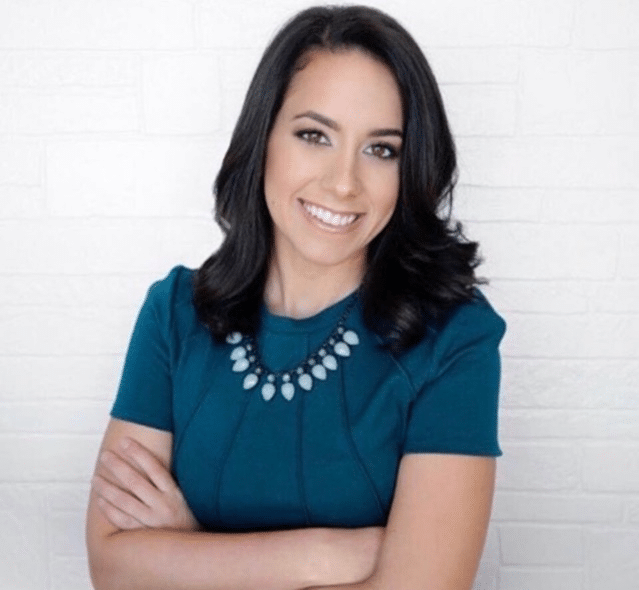 Amid the COVID-19 pandemic, institutions of higher education have experienced various challenges, including transitions to online learning and adaptations to the delivery of campus services. Students, faculty, and staff alike have navigated feelings of anxiety and stress amid these uncertain times. Further, students that identify as Black, Indigenous, and People of Color (BIPOC) are navigating two pandemics: COVID-19 and systemic racism. This reality presents an important question: How are university systems working to address racial injustice and support BIPOC students?
Amid the COVID-19 pandemic, institutions of higher education have experienced various challenges, including transitions to online learning and adaptations to the delivery of campus services. Students, faculty, and staff alike have navigated feelings of anxiety and stress amid these uncertain times. Further, students that identify as Black, Indigenous, and People of Color (BIPOC) are navigating two pandemics: COVID-19 and systemic racism. This reality presents an important question: How are university systems working to address racial injustice and support BIPOC students?
On Monday November 2, 2020, the College of Education (COE) Student Achievement Council (SAC) at Florida Atlantic University (FAU) collaborated with AACTE’s Holmes Scholars Program and the COE Diversity Committee to host a student outreach event with the purpose of addressing the aforementioned question. The three-part virtual presentation consisted of a welcome from COE Dean Stephen Silverman, a panel discussion with FAU’s Holmes Scholars, and an open discussion with all attendees of the event.
17 Nov2020
By Katrina Norfleet

Facilitated by a panel of education deans, this open forum will examine and discuss the integral role educator preparation programs play in advancing scholarly work on Critical Race Theory, as well as ways to resist attacks on institutions’ efforts centered around this work. You are invited to join your colleagues and share challenges and success stories about your efforts to address race, equity, and social justice during these challenging times including the following topics:
- The challenges EPPs face in advancing diversity, equity, and inclusion initiatives because of the federal ruling and COVID-19
- How EPPs can resist the recent attacks on institutions’ work and impact centered on Critical Race Theory
- Success stories of EPPs’ work in Critical Race Theory since the federal ruling and COVID-19
 In this new year, AACTE is recommitting its efforts to support the field in combating the racism that permeates throughout our education system. As a part of these efforts, AACTE will host a webinar each month that is centered on naming, learning, addressing, reforming, and promoting antiracist culture and policies throughout the education system. During these one-hour virtual sessions, you will hear from members and leaders in the field who have been doing the research and work to ensure PK-12 students receive a truly inclusive education. Our goal is for all participants, whether you are an administrator, faculty member, candidate, or current practitioner, to walk away with actionable steps to address internal, interpersonal, and systemic racism.
In this new year, AACTE is recommitting its efforts to support the field in combating the racism that permeates throughout our education system. As a part of these efforts, AACTE will host a webinar each month that is centered on naming, learning, addressing, reforming, and promoting antiracist culture and policies throughout the education system. During these one-hour virtual sessions, you will hear from members and leaders in the field who have been doing the research and work to ensure PK-12 students receive a truly inclusive education. Our goal is for all participants, whether you are an administrator, faculty member, candidate, or current practitioner, to walk away with actionable steps to address internal, interpersonal, and systemic racism.






 his article originally appeared in
his article originally appeared in  The Council for the Accreditation of Educator Preparation (CAEP) Board of Directors has approved changes to the 2013 CAEP Standards for educator preparation. The CAEP Standards guide the nation’s top schools of education, those that are CAEP accredited, in preparing future K-12 teachers. The changes the Board approved include streamlining language, strengthening emphasis on technology, equity, and diversity. The revised standards are in effect for providers with visits in spring 2022.
The Council for the Accreditation of Educator Preparation (CAEP) Board of Directors has approved changes to the 2013 CAEP Standards for educator preparation. The CAEP Standards guide the nation’s top schools of education, those that are CAEP accredited, in preparing future K-12 teachers. The changes the Board approved include streamlining language, strengthening emphasis on technology, equity, and diversity. The revised standards are in effect for providers with visits in spring 2022. 

 The nation’s transition to the 46th presidential administration are underway. AACTE provided the Biden-Harris Administration’s Education Transition Team with its policy priorities for the coming year. Much of AACTE’s priorities stem from its advocacy throughout the year to increase the federal investment in education in PK-20, with a specific focus on recruiting and sustaining candidates in its education preparation programs.
The nation’s transition to the 46th presidential administration are underway. AACTE provided the Biden-Harris Administration’s Education Transition Team with its policy priorities for the coming year. Much of AACTE’s priorities stem from its advocacy throughout the year to increase the federal investment in education in PK-20, with a specific focus on recruiting and sustaining candidates in its education preparation programs. Check out a recent JTE Insider podcast by the Journal of Teacher Education (JTE) editorial team. This blog is available to the public, and AACTE members have free access to the articles in the JTE online archives—just
Check out a recent JTE Insider podcast by the Journal of Teacher Education (JTE) editorial team. This blog is available to the public, and AACTE members have free access to the articles in the JTE online archives—just  The 1787 U.S. Constitution was ratified to establish justice, liberty, and prosperity, but not for all Americans. Like the Constitution, early American educational practices were based on a system of whiteness and elitism. Justice and prosperity for those who comprise marginalized groups have remained largely unfulfilled. We know for certain that we are a pluralistic society. No one group has singularly built this nation, secured its borders, nor defended its values. The plurality of our nation is our strength. As educators, particularly who prepare America’s future teachers, we must double down, now more than ever, on what Horace Mann said, “Education, beyond all other devices of human origin, is the great equalizer of the conditions of men, the balance wheel of the social machinery.”
The 1787 U.S. Constitution was ratified to establish justice, liberty, and prosperity, but not for all Americans. Like the Constitution, early American educational practices were based on a system of whiteness and elitism. Justice and prosperity for those who comprise marginalized groups have remained largely unfulfilled. We know for certain that we are a pluralistic society. No one group has singularly built this nation, secured its borders, nor defended its values. The plurality of our nation is our strength. As educators, particularly who prepare America’s future teachers, we must double down, now more than ever, on what Horace Mann said, “Education, beyond all other devices of human origin, is the great equalizer of the conditions of men, the balance wheel of the social machinery.”

 AACTE is proud to partner with the CEEDAR (Collaboration for Effective Educator Development, Accountability, and Reform) Center to bring you a
AACTE is proud to partner with the CEEDAR (Collaboration for Effective Educator Development, Accountability, and Reform) Center to bring you a  Amid the COVID-19 pandemic, institutions of higher education have experienced various challenges, including transitions to online learning and adaptations to the delivery of campus services. Students, faculty, and staff alike have navigated feelings of anxiety and stress amid these uncertain times. Further, students that identify as Black, Indigenous, and People of Color (BIPOC) are navigating two pandemics: COVID-19 and systemic racism. This reality presents an important question: How are university systems working to address racial injustice and support BIPOC students?
Amid the COVID-19 pandemic, institutions of higher education have experienced various challenges, including transitions to online learning and adaptations to the delivery of campus services. Students, faculty, and staff alike have navigated feelings of anxiety and stress amid these uncertain times. Further, students that identify as Black, Indigenous, and People of Color (BIPOC) are navigating two pandemics: COVID-19 and systemic racism. This reality presents an important question: How are university systems working to address racial injustice and support BIPOC students?